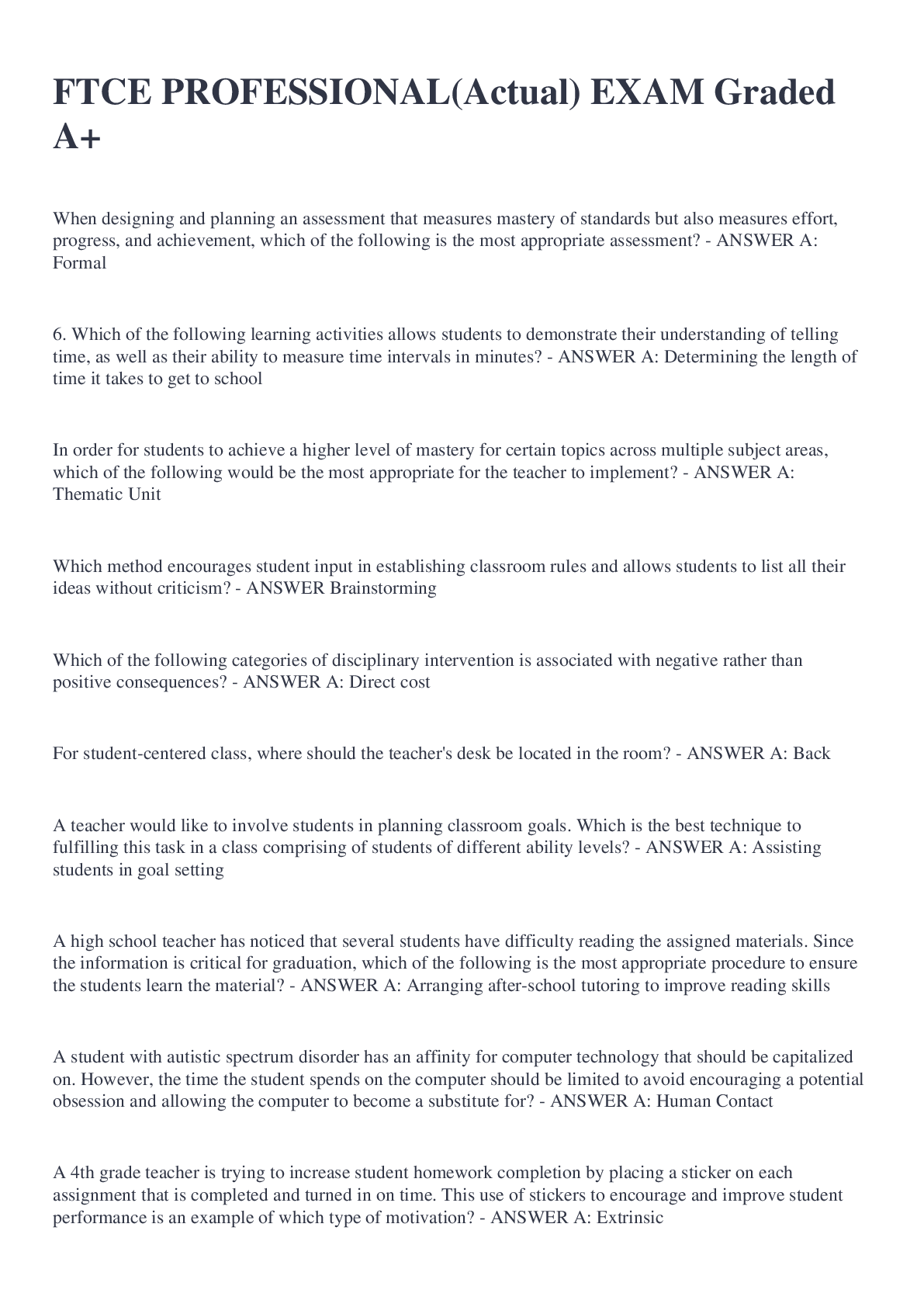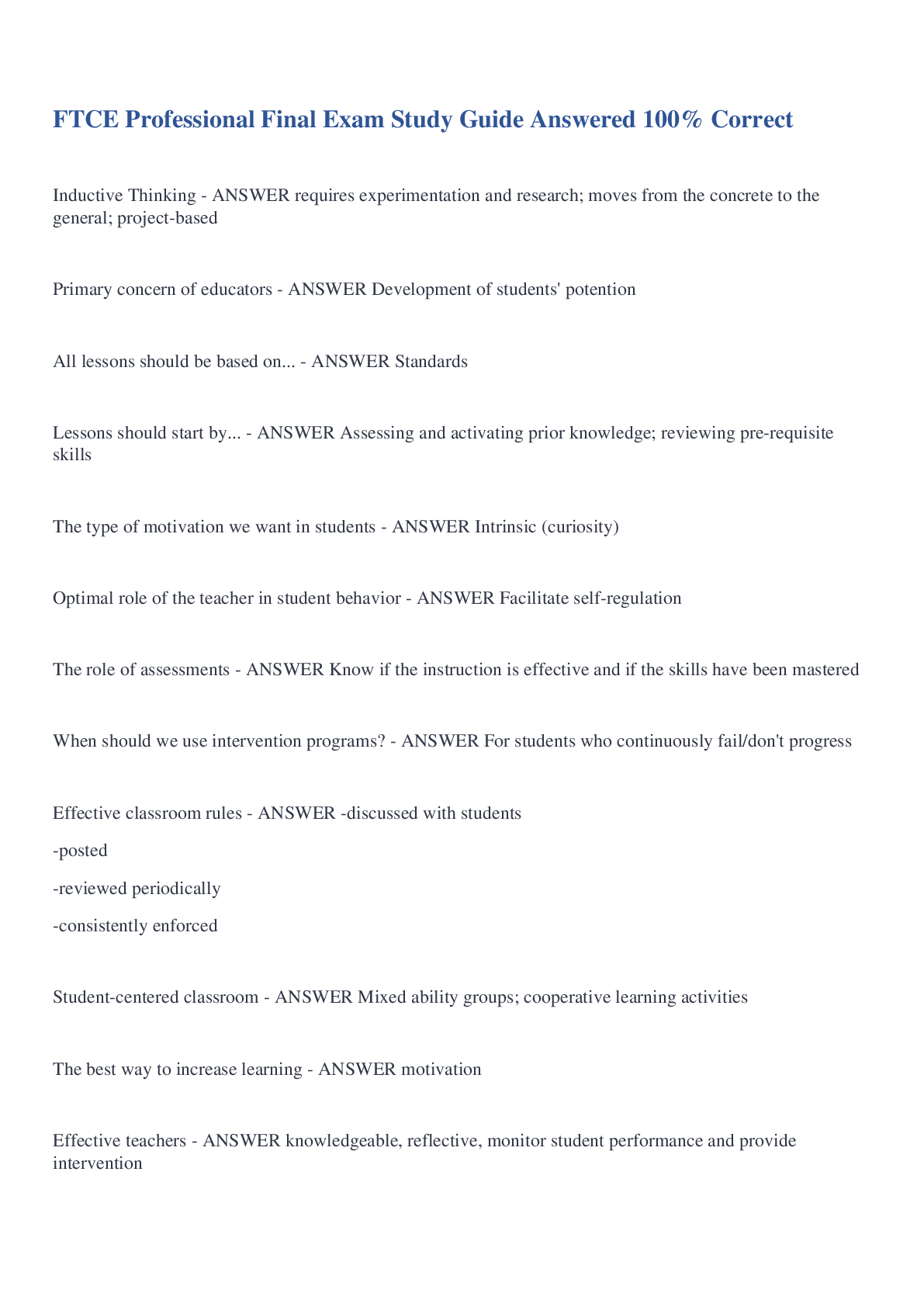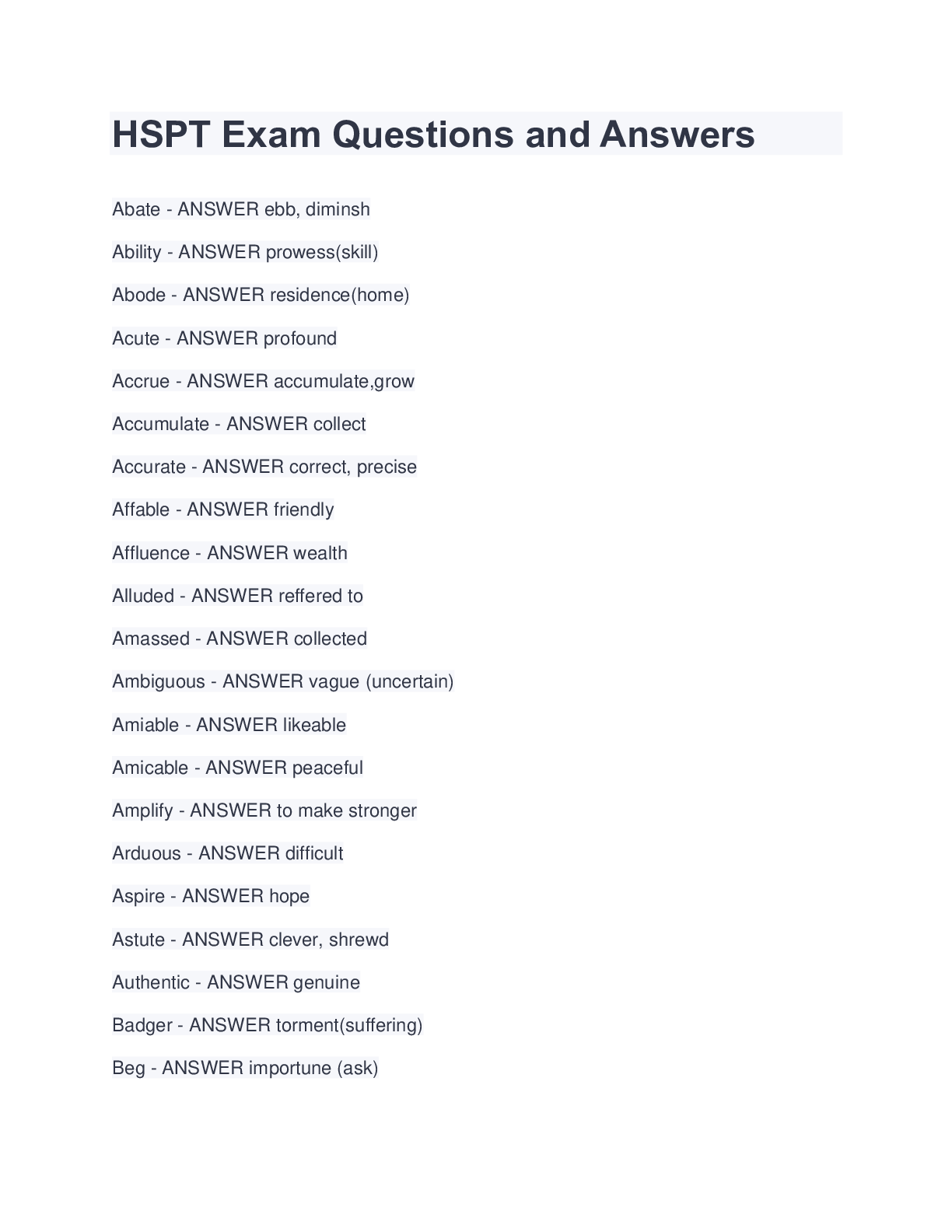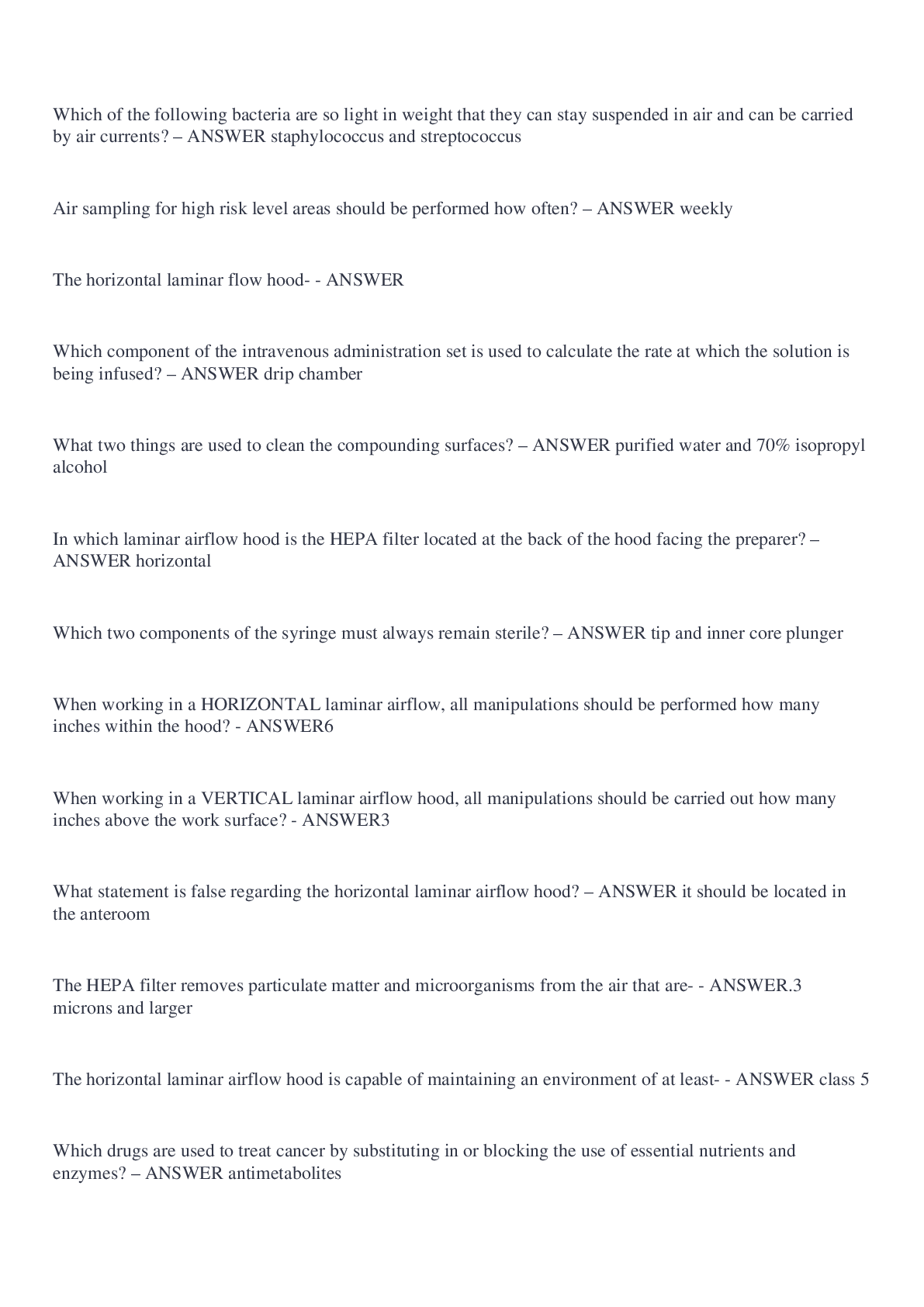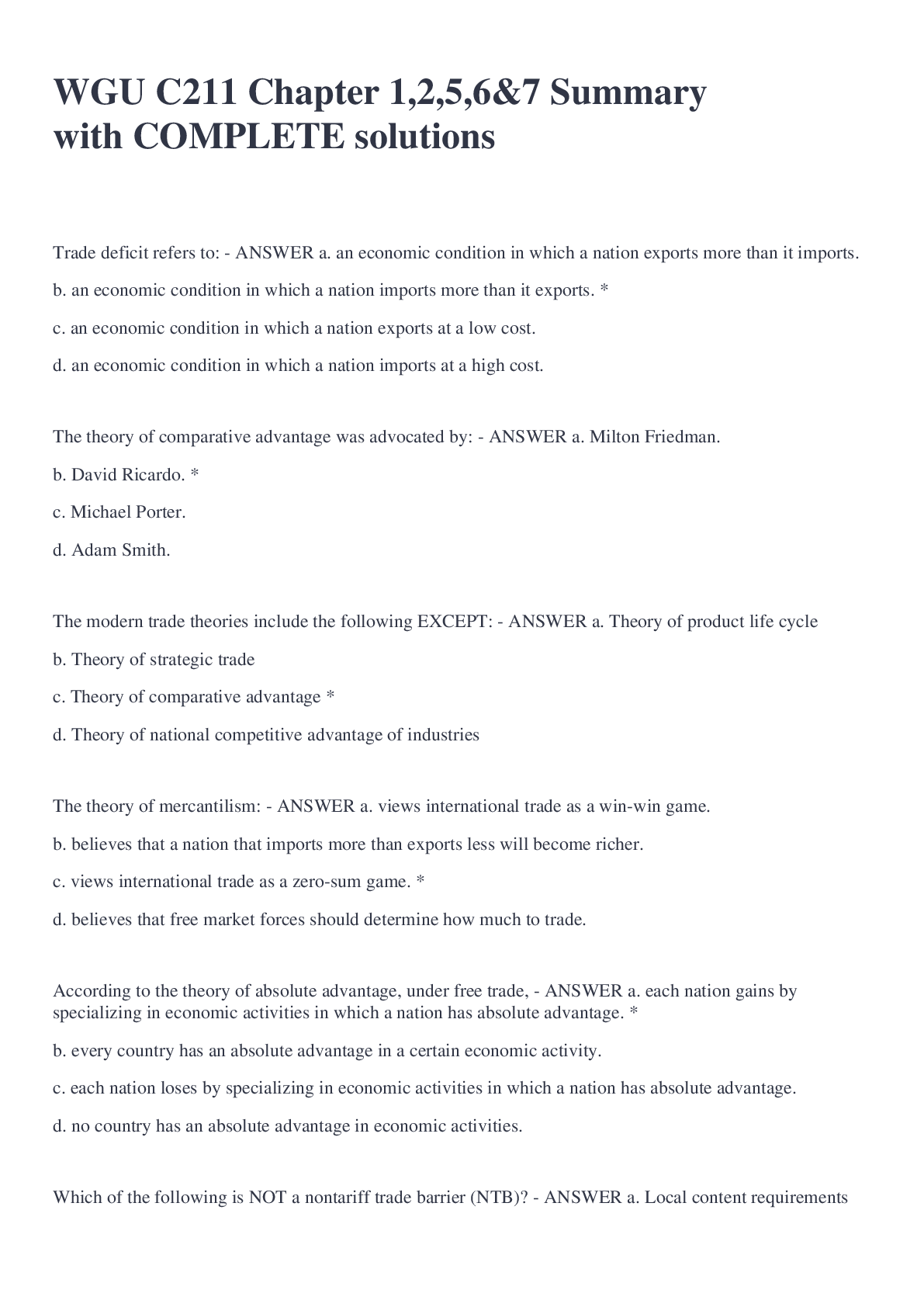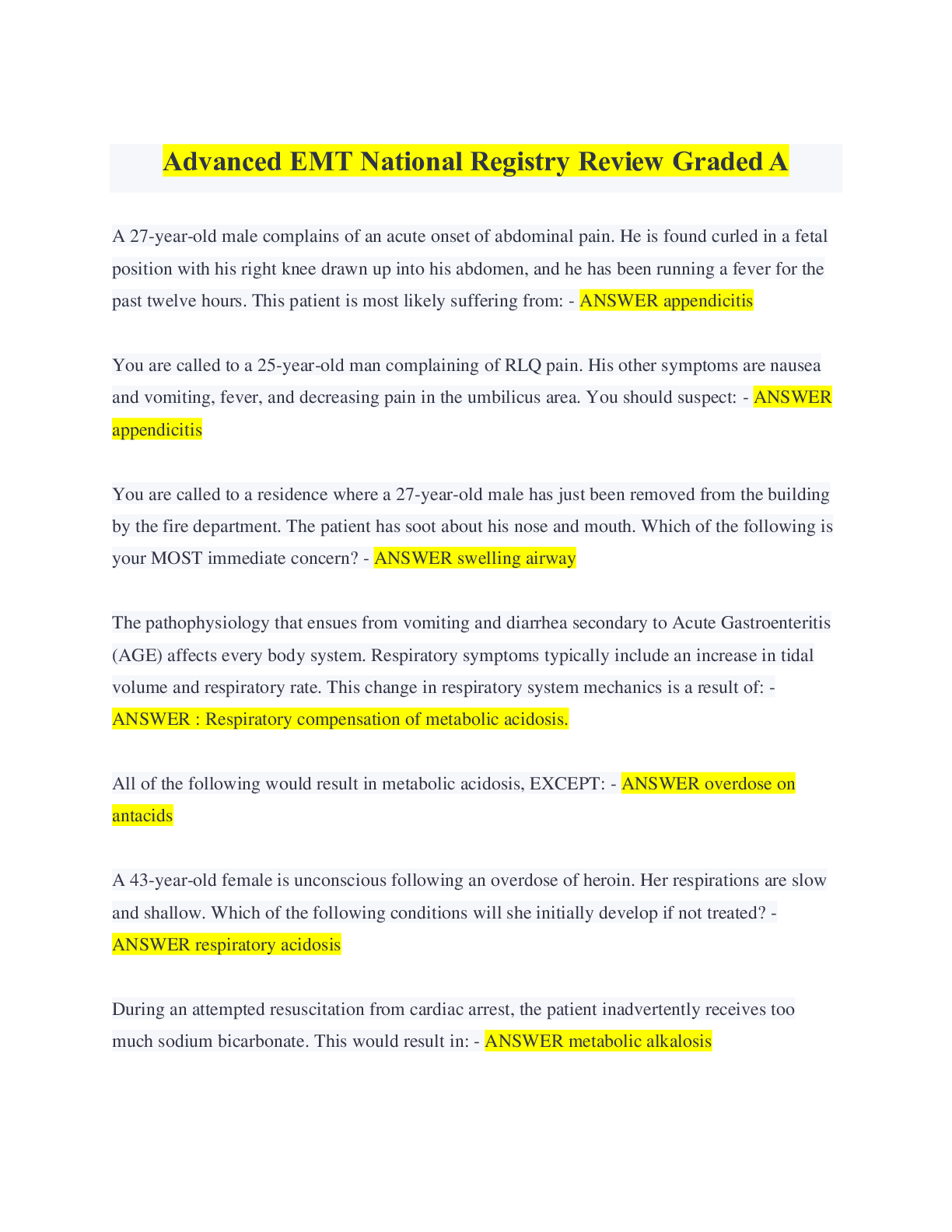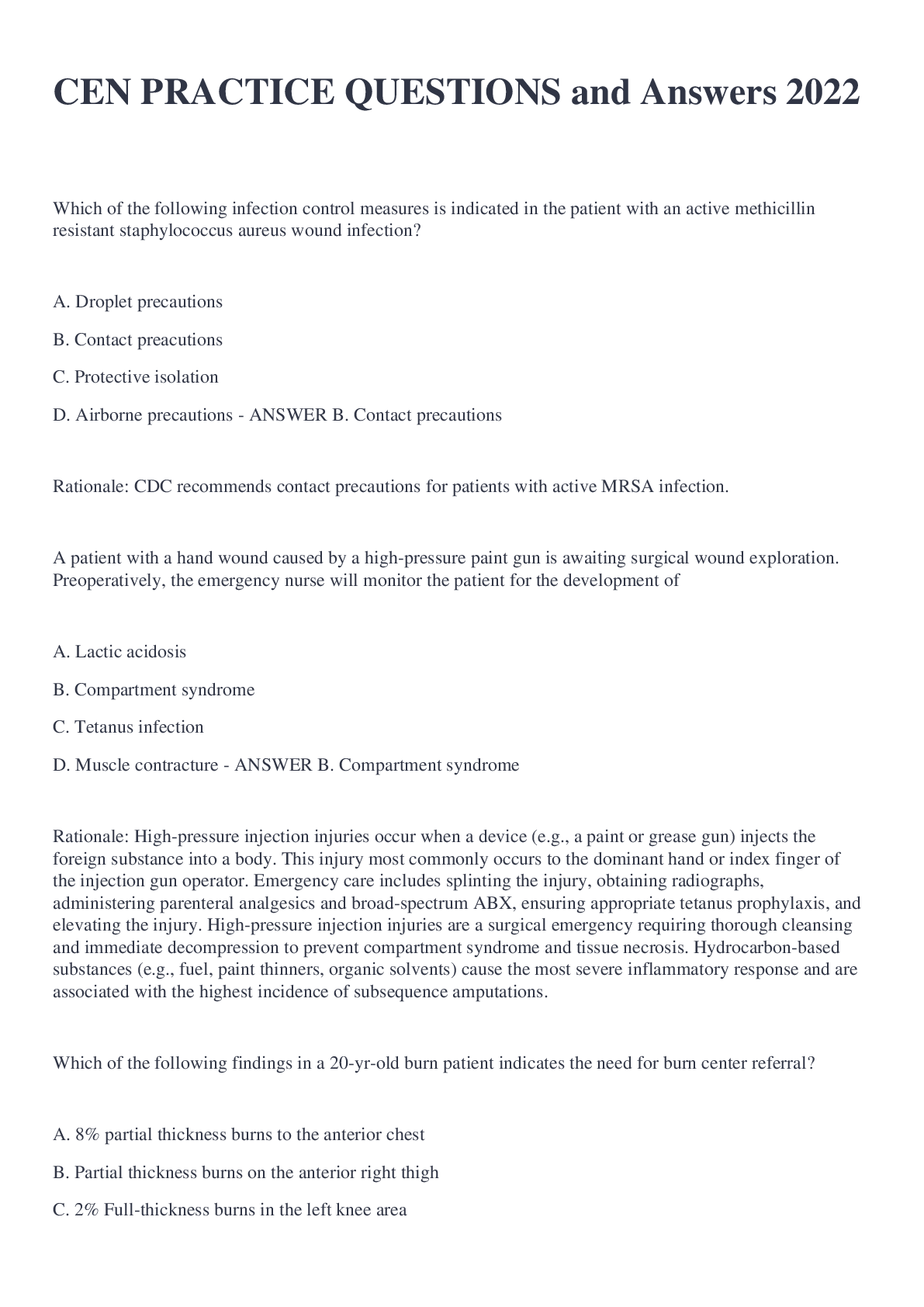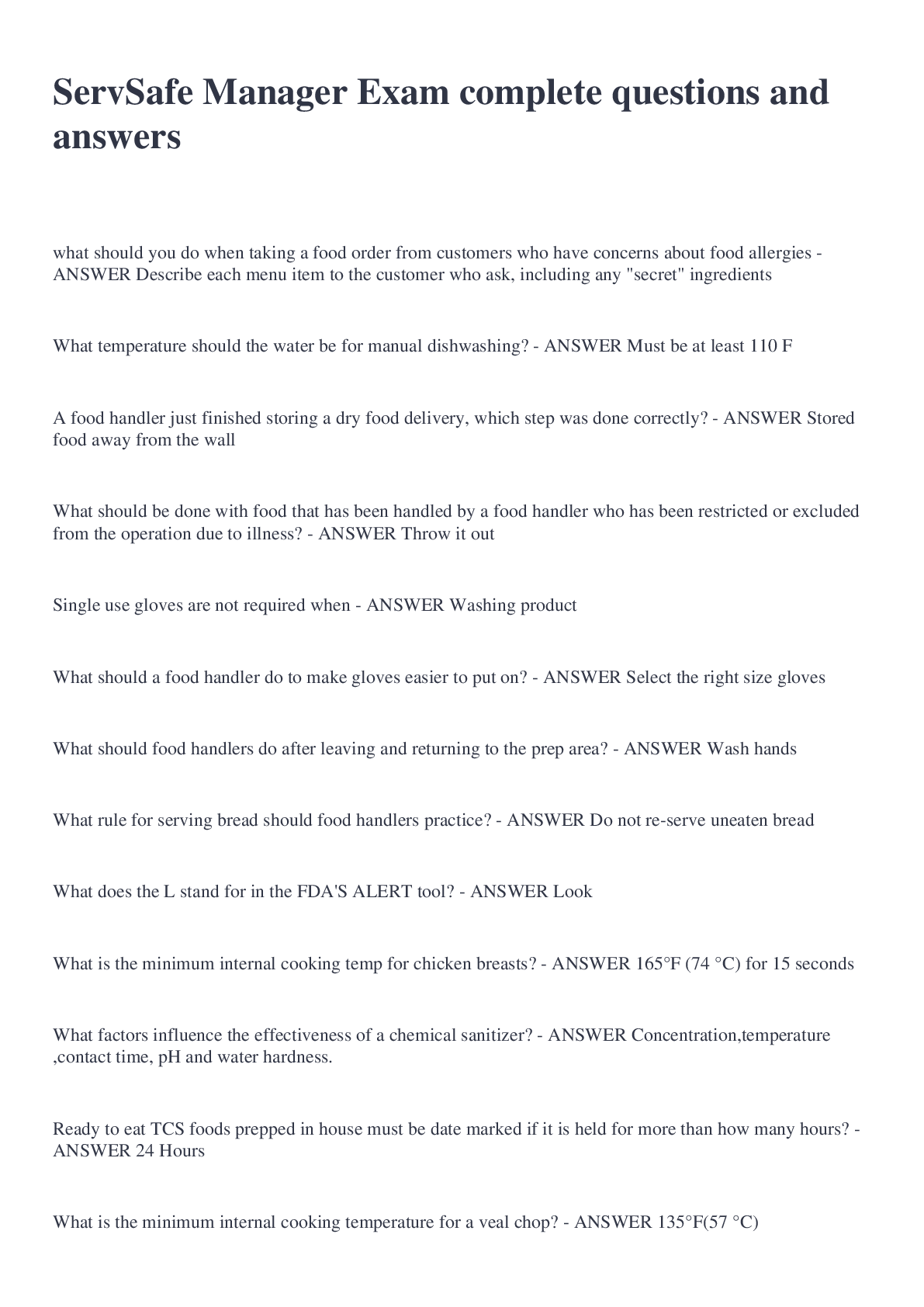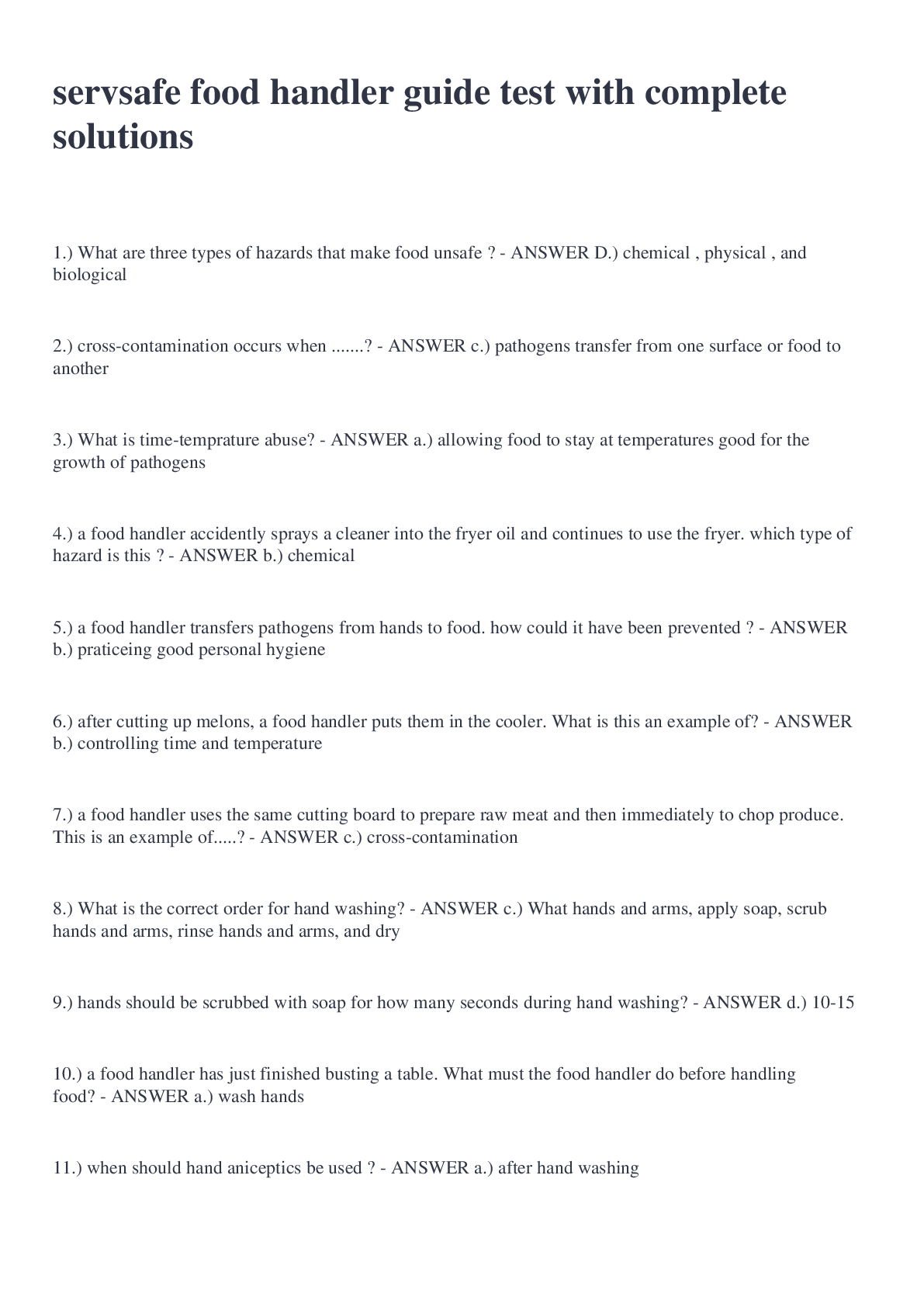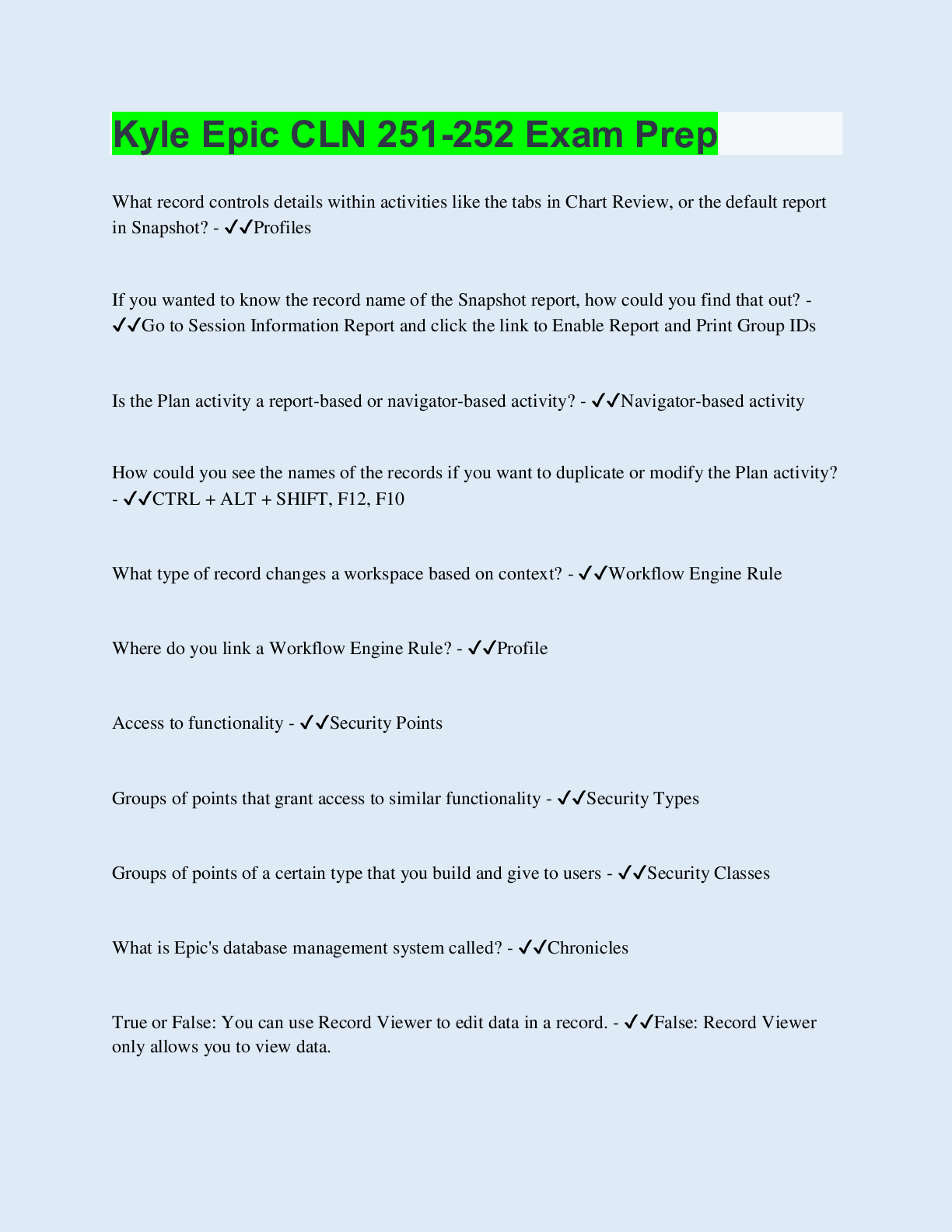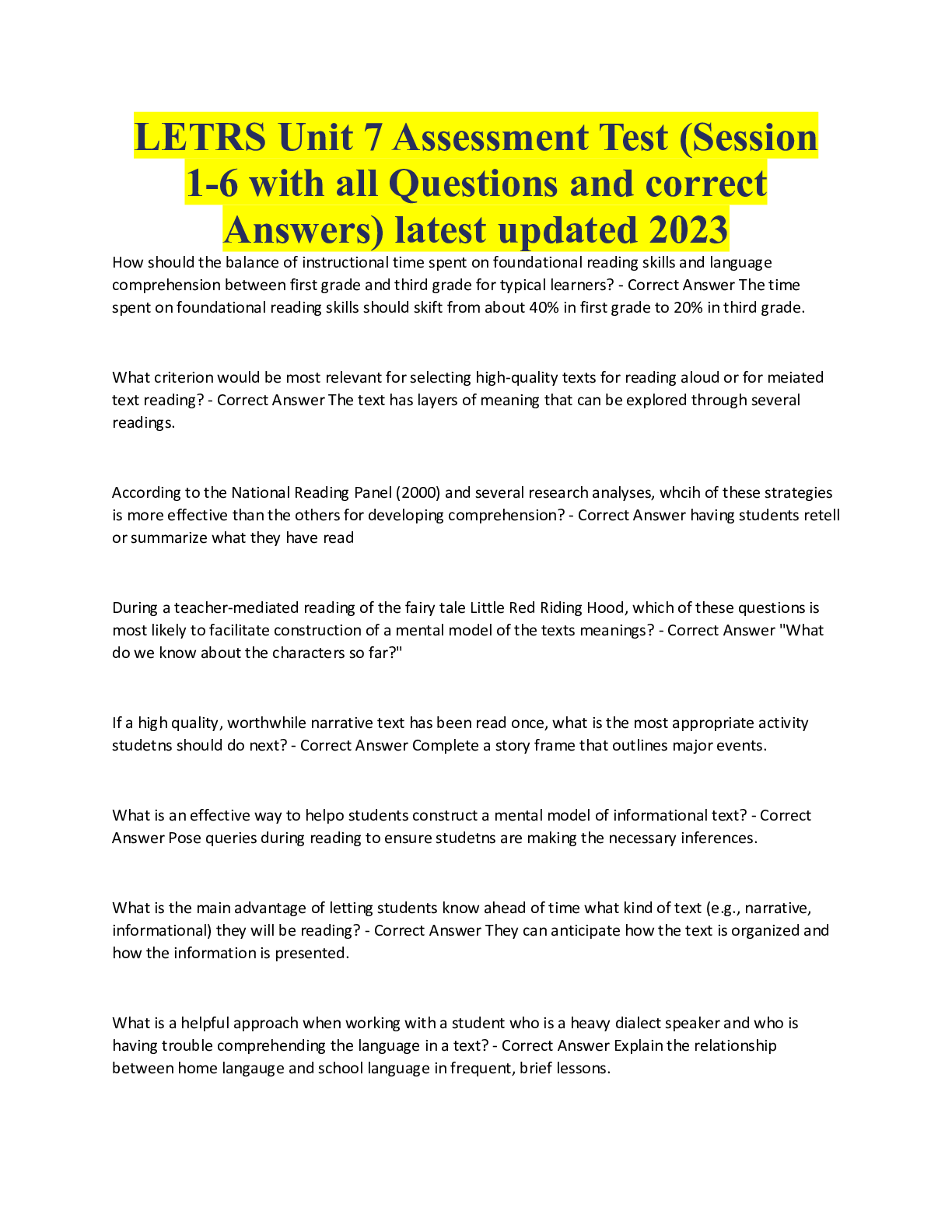MedSurg II endocrine review (detailed)2022/2023 Solved 100%
Document Content and Description Below
Hypothyroidism - ANSWER (hashimotos) usually caused by autoimmune response that lead to destruction of the thyroid gland Clinical manifestations of hypothyroidism - ANSWER decreased metabolism (wei... ght gain), fatigue, decreased appetite, cold temperatures Hypothyroidism can result in - ANSWER myxedema (increased deposition of glycosaminoglycans) Diagnosis of hypothyroidism - ANSWER T3, T4 (low) and TSH (high) Go to medication for hypothyroidism - ANSWER levothyroxine (synthroid) Levothyroxine is a - ANSWER lifelong medication Pt education for hypothyroidism medication - ANSWER you will not permanently be in a hypothyroidism state when taking meds Complications of hypothyroidism - ANSWER myxedema coma ( hypoxia and CO2 retention, fluid and electrolyte imbalances, and hypothermia), can lead to decreased carediac function and can show up as bradycardia and hypotension. Nursing interventions in order to treat hypothyroidism - ANSWER O2, VS, synthroid, daily weight, warm blankets We would recommend what for muscle aches and weakness? - ANSWER physical therapy With hypothyroidism we need to be careful with - ANSWER narcotics and sedatives due to slow metabolism and higher risk of overdose Hyperthyroidism - ANSWER (graves disease) autoimmune disorder involving antibodies that bind to the thyroid gland resulting in enlargement In primary hyperthyroidism our labs show up - ANSWER high T3 and T4 and low TSH Clinical manifestations of hyperthyroidism - ANSWER increased in metabolism, tachycardia, dysrhythmias, heat intolerance, increased gastric activity, increased appetite, weight loss Treatment for hyperthyroidism - ANSWER treat the side effects There are - ANSWER antithyroid medications If meds dont work for hyperthyroidism we can - ANSWER surgically remove tumors on all or parts of the thyroid If they do a total or subtotal thyroidectomy the pt will have to do - ANSWER thyroid replacement for the rest of their life Complications with thyroidectomys - ANSWER removal of parathyroid tissue resulting in hypoparathyroidism and damaging the larynx that effects swallowing and voice Postop priorities for thyroidectomy - ANSWER airway compromise, hemorrhage, hypocalcemia (hypoparathyroid) Complications with hyperthyroidism - ANSWER thyroid storm (surge of T3 and T4)- tachycardia, fever, systolic htn, abd pain, tremors, and change in LOC. hyperthermia and seizures. Assessments for hyperthyroidism - ANSWER intake and output (insensible fluid loss - respiration loss of fluid, diarrhea, etc), VS, goiter, skin turgor Hypoparathyroidism - ANSWER secondary to removal of parathyroid glands during a total or subtotal thyroidectomy Primary disorder associated with hypoparathyroidism - ANSWER low calcium and vitamin D Side effects of hypoparathyroidism - ANSWER numbness and tingling around mouth hands and feet, chvostek sign (tap on cheek and contracted face muscle), trousseau sign (inflate BP to 20 for 3-5 minutes and flexion of wrist and fingers) In hypoparathyroidism Labs would show up as - ANSWER low Ca, high phos, and low PTH Treatment of hypoparathyroidism - ANSWER calcium supplements Hyperparathyroidism - ANSWER parathyroid adenomas account for 85% of the cases of primary hyperparathyroidism Primary hyperparathyroidism labs would look like - ANSWER high Ca and low phos Hyperparathyroidism causes hypercalcemia secondary to - ANSWER its actions on bone, kidneys, and the bowel Ostoclastic - ANSWER breakdown of the bone which causes an increase in ca Increased reabsorption of calcium leads to - ANSWER elevated serum calcium levels Reabsorpiton of calcium in what is also increased? - ANSWER bowel Clinical manifestations of hyperparathyroidism - ANSWER shortened QT interval, constipation, anorexia, polyuria and muscle weakness Priority assessments for hyperparathyroidism - ANSWER strain urine for Ca stones, monitor Ca and phos levels, stool softeners Nursing interventions for hyperparathyroidism - ANSWER increase fluid intake, loop diuretics (avoid thiazide diuretics) Plan of care for hyperparathyroidism - ANSWER cardiac monitoring, monitor acid base status, Calcium levels and phos levels In hyperparathyroidism there is an increased risk of - ANSWER fracture Anterior Pituitary Gland hormones include - ANSWER ACTH, GH, TSH, FSH, LH ACTH - ANSWER adrenocorticotropic hormone (corticosteroids) GH - ANSWER growth hormone TSH - ANSWER thyroid stimulating hormone (T3 and T4) FSH - ANSWER follicle-stimulating hormone- ovaries and sperm LH - ANSWER Luteinizing hormone- ovulation/testosterone Posterior Pituitary Gland hormones include - ANSWER ADH, oxytocin ADH - ANSWER antidiuretic hormone- controls water retention Oxytocin - ANSWER controls circadian homeostasis and breast mild along with uterine contractions Hypopituitarism - ANSWER hyposecretion of hormones from the anterior pituitary gland Decrease in - ANSWER all anterior hormones Decrease in growth can cause - ANSWER dwarfism Decrease in ACTH becomes a decrease in - ANSWER steroid and decrease in blood sugar Hypopituitarism can also impact the capabilities to deal with - ANSWER stress Clinical manifestations of hypopituitarism - ANSWER everythings low and slows down Medication management for hypopituitarism includes - ANSWER hormone replacement Hyperpituitarism - ANSWER hypersecretion of hormones from the anterior pituitary gland Hyperpituitarism is usually caused by - ANSWER hypersecreting tumors Excess growth hormone causes - ANSWER acromegaly- thickening of the bones, large hands and feet and facial bones Risks of hyperpituitarism - ANSWER hyperglycemia, giantism, coarse facial features, oily leathery skin Medications for hyperpituitarism - ANSWER some medications can help decrease the size of the tumor before surgical removal Surgical management for hyperpituitarism - ANSWER tumor removal- transsphenoidal hypophysectomy Transspheoidal hypophysectomy management - ANSWER (basically a lobotomy), watch for CSF leakage, do not increase ICP, NO IS How do we know CSF from normal snot? - ANSWER halo test, (CSF has glucose and will halo) Normal blood sugar is - ANSWER 65-99 Insulin is released from - ANSWER beta cells of the pancreas Glucagon is released from - ANSWER alpha cells of the pancreas Insulins job is to - ANSWER "unlock" the cell so it allows glucose to enter, therefore lowering the sugar in the blood Type I diabetes is most commonly diagnosed before - ANSWER 30 DM type I is frelated to - ANSWER beta cells (not able to make insulin) Insulin deficiency is which diabetes - ANSWER type I [Show More]
Last updated: 2 years ago
Preview 1 out of 8 pages
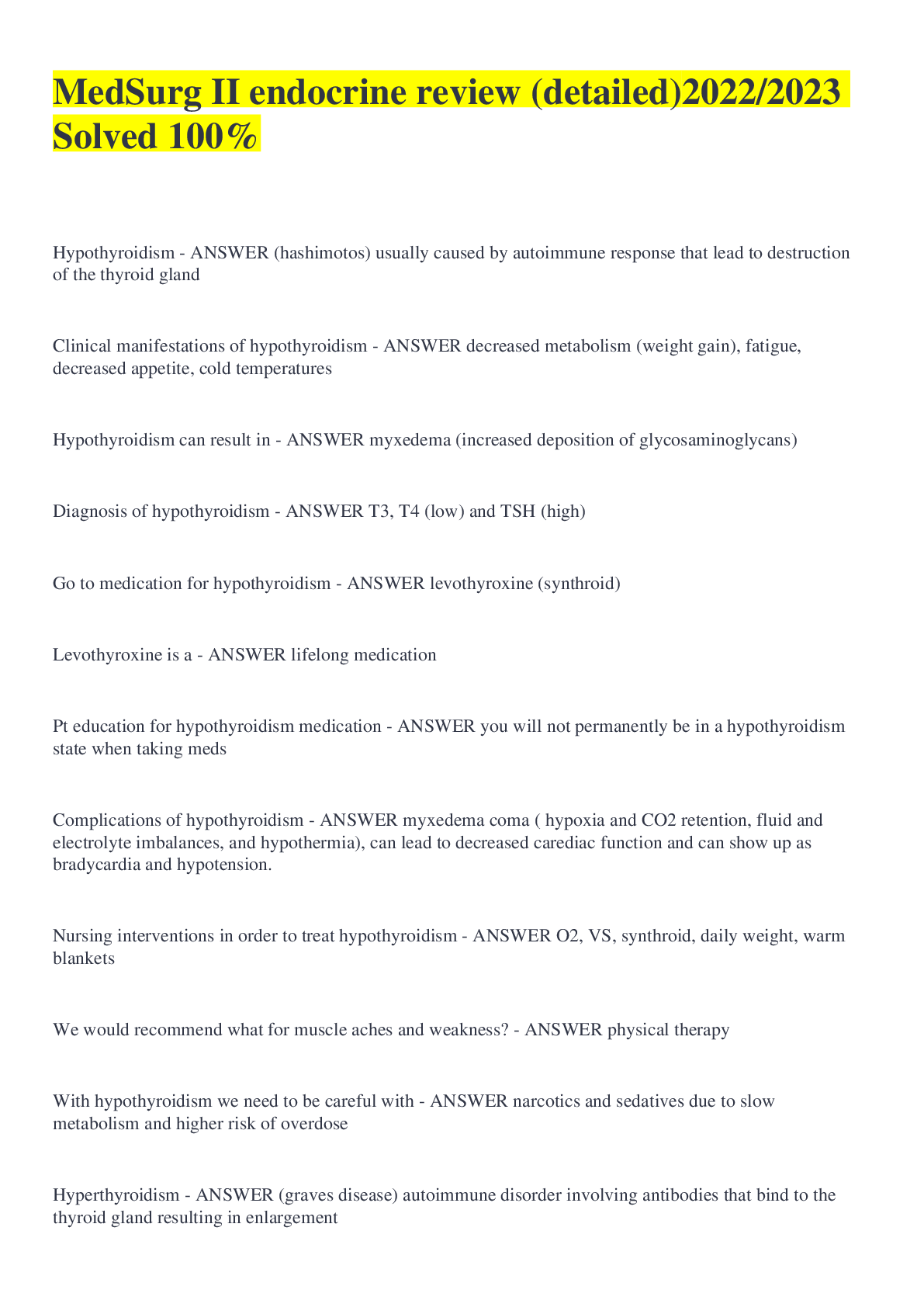
Buy this document to get the full access instantly
Instant Download Access after purchase
Buy NowInstant download
We Accept:

Reviews( 0 )
$8.00
Can't find what you want? Try our AI powered Search
Document information
Connected school, study & course
About the document
Uploaded On
Oct 06, 2022
Number of pages
8
Written in
Additional information
This document has been written for:
Uploaded
Oct 06, 2022
Downloads
0
Views
37

